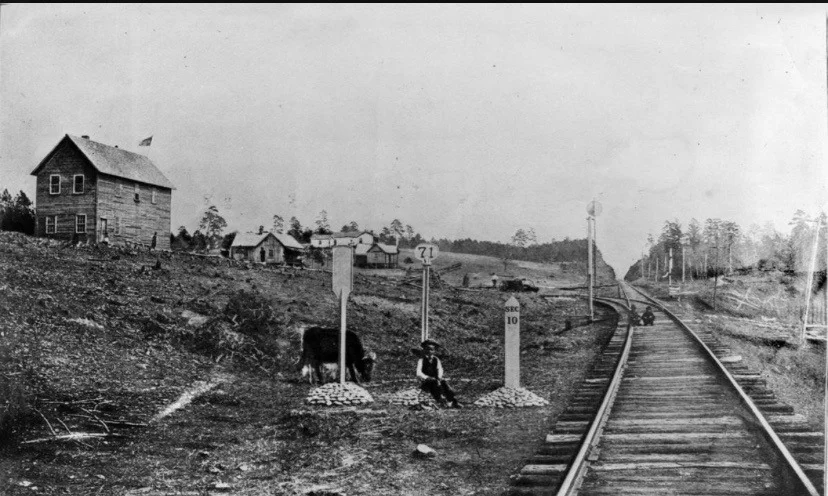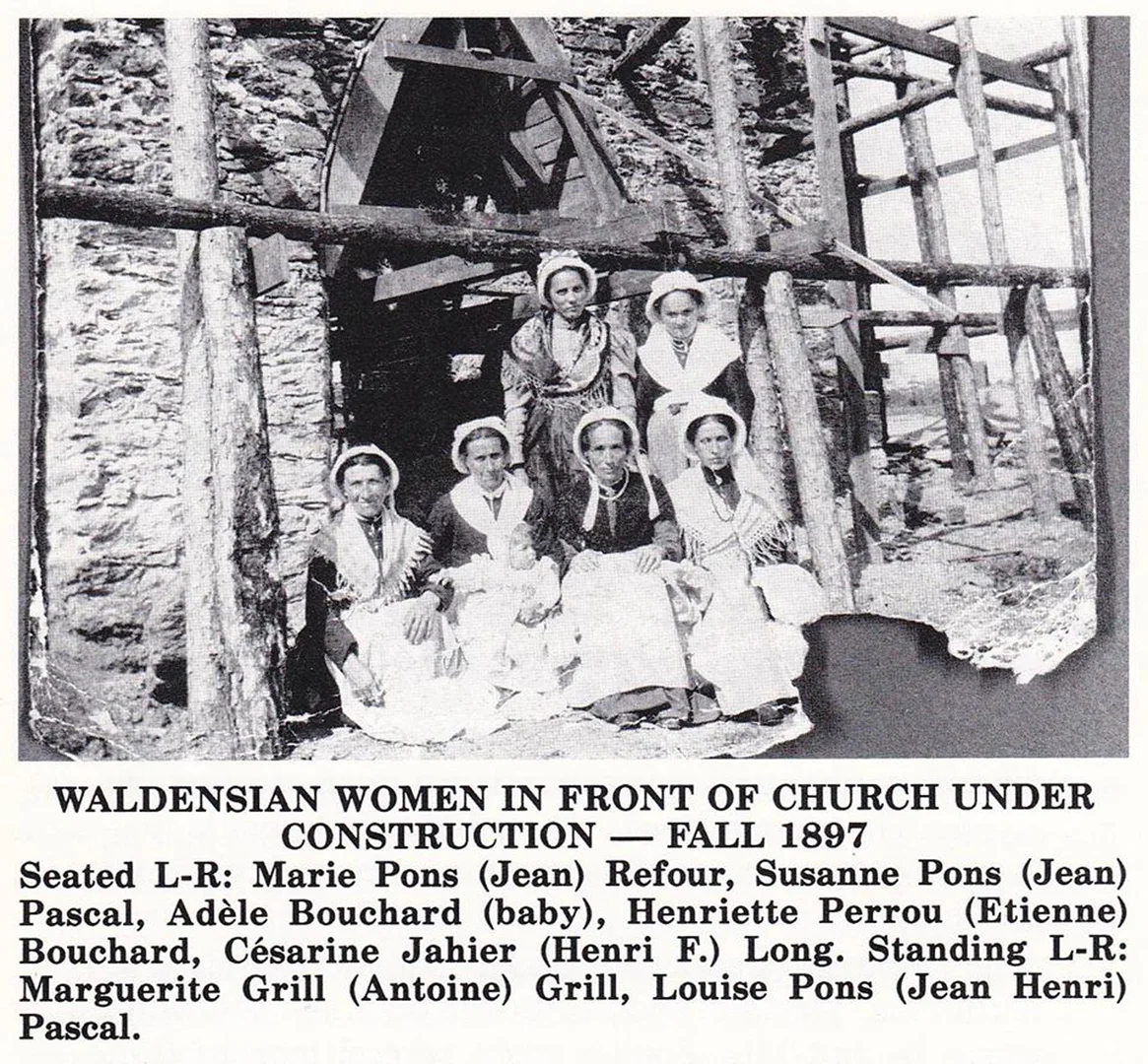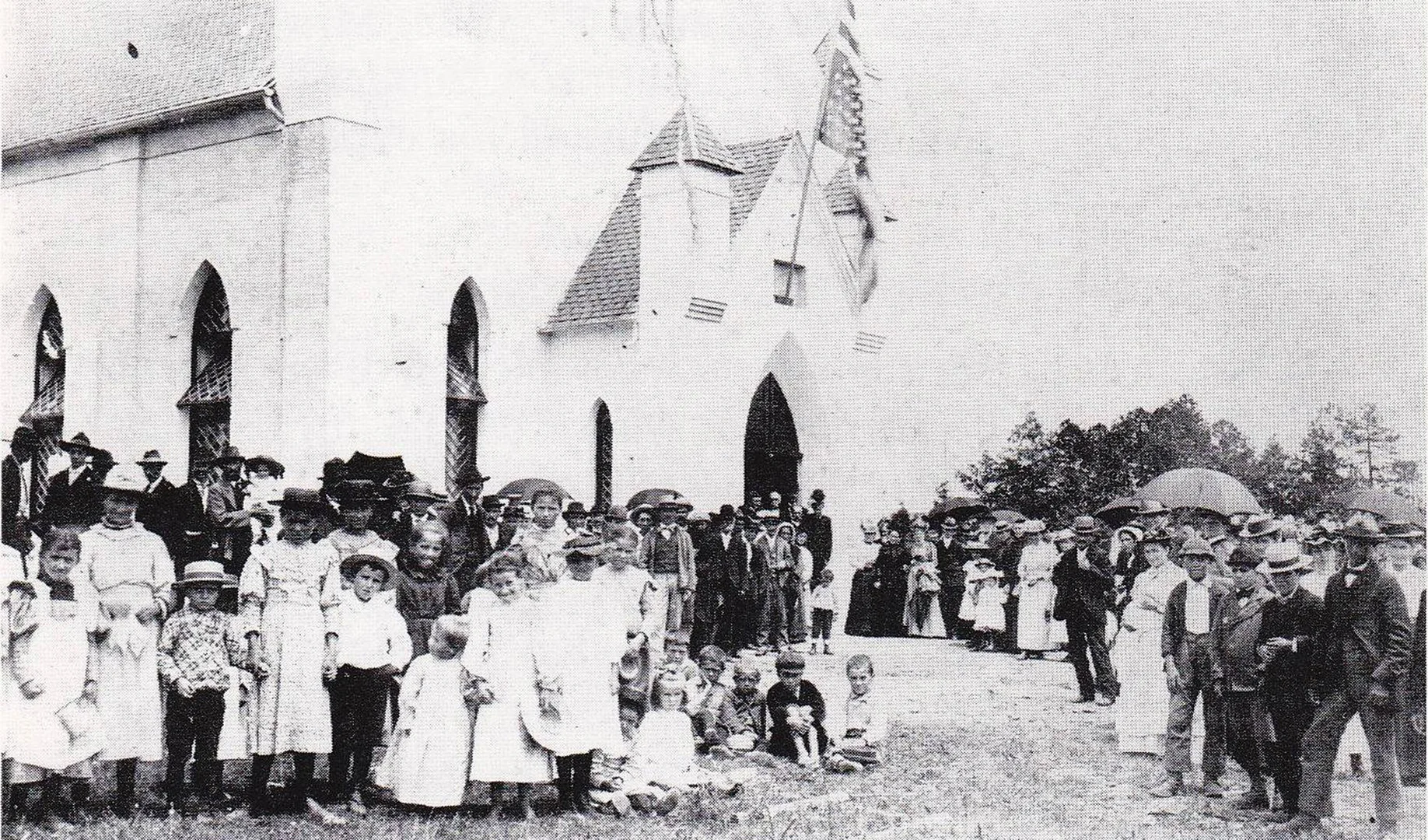The Arrival
Coming to America – Waldensian Settlement in Valdese, NC
On May 29, 1893 Southern Railway's "No. 11" chugged its way three miles west of Icard Station at Connelly Springs to a prearranged spot "in the middle of nowhere" and there stopped long enough to deposit a travel-weary band of twenty-nine souls who were to break ground for a settlement.
The first step off the train onto Burke County soil was a ten-year-old boy, Louis Phillippe Guigou. Years later, after Louis had grown up and the town had grown with him, he was persuaded to put together, as he put it, "a short account of the events that led to the movement of choosing Burke County in North Carolina as a place to which a group of 'Furriners' would come and establish their new homes."
Who more interesting than the first Waldense off the train to tell that story! So here from the notes of Louis Phillippe Guigou is "the way it was".
How did the Waldensian Colonists happen to come to Burke County? It is recorded in various places that a certain Marvin F. Scaife, an individual of much means and ambition, heard a certain Waldensian Pastor, the Rev. Teofilo Gay [pronounced Guy] in the city of Pittsburgh, Pennsylvania, talking on the subject of the Waldenses in the Cottian Alps of Northwestern Italy, their church organization and beliefs, also their ambitions to push the work of evangelization in Italy. He further spoke of their poverty and need for financial help for the work of the Church.
During these interviews, the thought was brought out that the lands the Waldenses inhabited were mountainous and rugged and too thickly populated, and many were leaving the Fatherland for new homes in the New World. Scaife, being an enterprising capitalist and in touch with people controlling large tracts of land in Western North Carolina, is said to have offered immediately to help locate a colony in Western North Carolina; and from that start resulted in Valdese - 1893.
After Gay returned to the Waldensian Valleys in late 1891 he told the Church Synod in Session assembled of his having met Marvin F. Scaife in the United States, and of the latter's interest in colonization movement to the Western part of North Carolina by the Waldenses. This information created a sincere interest in several of the leading ministers of the Church. They broadcast the information and invited those interested to meet at various churches and discuss the offer.
In the meantime, Scaife, [on a trip to Europe in 1891 to see after the affairs of an aunt who had land holdings in France, Germany, and Italy] stopped in Rome to talk the proposition over with the leaders of the Waldensian Church. Among them were the Reverend Mr. Buffa [pastor of the Waldensian Church in Rome] and Dr. Matteo Prochet [Chairman of the Committee for Evangelization]. Two recognized leaders of the Waldensian Church at that period were Dr. Prochet and Dr. Charles Albert Tron. Dr. Tron lived in St. Germain near La Tour [Torre Pellice], the capital of the Waldensian population and evangelical activity.
Dr. Teofilo Gay visits Burke County
For a long time, Waldensian pastors had been concerned about sending more immigrants to the unfamiliar and unwholesome atmosphere of crowded city ghettos and tenements. Thus, the possibility of planting a colony in a more rural section of the United States seemed an answer to prayer. Following the conversations with Scaife, Buffa wrote Gay - who had reassured his fund-raising circuit in America - urging that he alter his itinerary to check out the land Scaife and associates were recommending in Western North Carolina. Subsequently, Gay did visit Burke County, and even lectured in Morganton. Apparently, he only saw the proposed lands - a tract of one hundred thousand acres between Old Fort and Black Mountain - from train windows en route to Asheville, but he notified his colleagues in Italy that what he saw looked good.
Based on Gay's assessment, the ministers moved forward with colonization plans, holding meetings in various locations in the Valleys to see what interest there might be in a move to North Carolina. Dr. Prochet liked the idea but suggested that if a worthwhile number of families were interested in moving to North Carolina, they should send two of their group to see the lands offered for colonization, and await their return and reports on what they had seen.
Bounous and Richard "Spy Out the Land"
Taking Prochet's words to heart, the Waldenses sent two delegates, Jean Bounous, and Louis Richard, to North Carolina to examine first-hand the proposed land. Guigou describes their arrival: ...Jean Bounous and Louis Richard left the valleys of Italy in early March, arriving in Morganton, North Carolina March 20. They did not speak English and this proved a great handicap. The Morganton Herald recorded that they ate a meal at the Hunt House, but did not register there. The letter of introduction given them by Dr. Tron identified them, and they were taken to the Piedmont Bank, where a Mr. Pearson welcomed them and, knowing of the anticipated movement, accompanied them to the office of W.C. Ervin. Ervin did not speak French either, so he accompanied them to Emile Frisard, a beloved Morgantonian who spoke fluent French. The latter being very much interested in bringing a colony in this section of North Carolina, after a preliminary conference with Ervin, took charge of the delegates, [lodged them in his home], and accorded them every courtesy. During the next two weeks, he drove his fine horses many miles in different directions over lands owned by the Morganton Land and Improvement Company than they might see for themselves the acreage for the Colonization.
Frisard first took the men to the Round Knob Section beyond Old Fort to see the immense holding of the Farmer's Company that Scaife had proposed to the Waldensian leaders. The tract was heavily timbered, and with the deal came a contract to sell bark to tanneries in Asheville. A hotel on the property would provide temporary lodging for the colonists until proper houses could be built. Water was plentiful. And Frisard could verify what Scaife had written to Dr. Tron in an earlier letter, that there were "bears (not terrible), wild cats, geese, and trout in abundance."
But, as Guigou points out in retelling the story, "the delegates did not like the Round Knob area, and were frank to state that this was no better than the high mountain regions they inhabited in Italy," the mountainous and rocky terrain being unadaptable for farming. They refused to accept the property and requested to be shown other lands.
Each day Frisard drove them to other locations, eventually taking them eight miles east of Morganton to see various parcels of land owned by the Morganton Land and Improvement Company in the area between Morganton and Connelly Springs. They saw the little farm the Waldenses would later call "the Brick House place," which was then the political center for the Lovelady Township. Other farms were the Berry place, about one-half mile east; the Bollinger farm, about one mile south; and toward Rutherford College, two or three small farms that impressed the delegates favorably.
The Frisard and other representatives of the land company showed them the South Mountains and the High Peak section, traveling on horseback over much of the range. From these heavily timbered lands, they were told, the settlers could cut virgin timber for the building trade and in season peel tanbark for the tanneries, making cash available while crops could be grown in the cultivated areas.
As a whole, the "spies" saw more potential in these lands than any others they had been shown, and time was running out. So, even though Richard had strong reservations about both the layout of the properties and the fertility of the soil, they wired Tron that the land was good, and headed home.
On March 30, The Herald ran this review of their visit: We had the pleasure of meeting Messers. Bounous and Richard... who are men of intelligence and who are thoroughly posted to the need of their people. They found the land of Burke County admirably adapted for grape culture, in which they excel and made a favorable report to their people... The delegates were invited to visit other points in the state, but as their mission was a special one and their time limited they could not accept.
The Crossing
Back in the Valleys Bounous and Richard made their report to a large gathering of hopeful families. Guigou and his parents were there:
This report called for another meeting for the interested families in the Waldensian Valleys, which Dr. Tron called immediately; and several families ours included, decided to make necessary preparations and start to the New World in May, which was only some six weeks off. In fact, these same families had been preparing since early March. There was only one condition, as my father told me later, that Dr. Tron would accompany them.
Dr. Tron, who spoke very good English, agreed and was chosen as the leader of the movement in which he was very much interested. He, in turn, outlined the plans of procedure and called the heads of families interested to the town of Pomaretto in late March. At this meeting, the day was set for the departure from [the villages of] Pomaretto, Perosa, Argentina, and St. Germain. The folks...met at Pinerolo, moving from there by train to the city of Turin, Italy. From Turin, they entrained for the town of Modane, the first railway station across the Cottian Alps in France. During this overnight ride, the train perforated the second-longest tunnel in the world, known as the Mt. Cenis Tunnel.
The next stop was Lyon, France, the Paris, and the last in Europe was Boulogne sur Mer, in the northwest section of France, a seaport on the English Channel. In this city, the travelers had a date with the Holland American Steamship Company for transportation to New York, which Dr. Tron had previously arranged. Here in Boulogne sur Mer, the immigrants stayed at the Company Hotel for five days awaiting the arrival of the ship Zaandam. Company officials tricked our group into staying at company expense because they wanted to get rid of other immigrants who had come there for transportation to New York without having definite reservations. So, instead of crossing the Atlantic on the Veindam, which left for port ten hours after we arrived, and crossed in seven days, our group later crossed on the Zaandam, which was some fifteen days in transit, arriving in New York on May 26.
The Train Ride
With Louis Phillippe's narrative as background, one could easily be transported back in time to that day of starting the final leg of the journey to a new life in a new and strange land. It had been twenty-six days from arrival in Boulogne ser Mer to the moment of boarding the train bound for North Carolina. What thoughts, what feelings must have been tumbling through the minds of these hearty, but weary and already homesick travelers?
Awaiting the First Arrivals
Meanwhile, many miles away other travelers were stirring on the dirt roads of Burke County as the mid-morning sun climbed higher over the South Mountains. For many people, this Monday was a very special and long-awaited day. Those strangers from across the sea were arriving today. Noon or thereabouts. Coming in on "No. 11". Even though noon was more than an hour away, the hillsides around the designated place of arrival-where used to be the old Billy McGalliard plantation - were already dotted with people. By buggy and wagon, on horseback and on foot, little clusters of locals were assembling down below the farmhouse that had been Lovelady Township voting place, staking out choice spots from which to get a good view of the train in its approach from Connelly Springs, heading west.
They came for a variety of reasons. Some were part of the "official welcoming committee," there by invitation of the Morganton Land and Improvement Company. Some owned land adjoining the properties acquired by the Company for their new settlement. Naturally, they were curious to see what their new neighbors would be like. Others were out to see what the newspapers had been making such a fuss over for the past several months. Those lacking the ability to read were even more curious to see what all the talk was about. "For many and wild had been the tales that had gone from mouth to mouth and door to door throughout the regions of all the South Mountains about these foreigners who were coming."
Geneva Hiergesell, a descendant of Burke County locals, writing fifty years later, captured the apprehensions well:
Now, in times past...the ruling church of all Christendom had frowned heavily upon these free-thinkers who lived high in the Alps, embracing the precepts of the Protestant movement even before the movement came into being, and The Church had branded them as heretics and condemned the members "to death," offering amnesty to anyone who rid the earth of a Waldensian.
Now these tales had reached Burke County and the thing became so twisted until the natives of the South Mountains (some of the natives) heard it that some three-eyed monsters were being cast out of Europe and coming this way, because they were heretics and did not believe in God!.
Well, as the good ship Zaandam crossed the ocean, the good people from the South Mountains were busy holding prayer meetings, going from cottage to cottage, asking the King of Heaven and of the Earth and of the Seas to sink the Dutch Ship and rid Burke County of its coming problems, before they arrived.
Let it be said in haste that these same people held other prayer meetings on later days, thanking
God for not answering their prayers which they had made in their ignorance and which He, in His wisdom, knew they didn't want to come to pass anyhow.
Yes, these reactions to the coming of the Waldenses were indeed mixed. And even up to the last minute, there was speculation that they might not be coming at all. One newspaper, the Hickory Press and Carolinian carried a fascinating poem on that subject.
Where, oh where are the Waldenses Sailing to the Promised Land?
Did their schedule of expenses Overrun the cash in hand?
Did they have a silly notion We'd so gladly see them come,
As to bring them O'er the ocean And provide them each a home?
Have they found they are mistaken?
And that people up in Burke Get their homes and bread and bacon
Just like other folks, by work?
Farewell, visions of migration Dreams of foreign face and tongue,
And that queer Civilization Which mid ice and snow upsprung.
Hopes of vineclad hills and valleys, filled with corn and wheat and rye,
Hopes of Democratic rallies
Where they'd vote with us, Good Bye!
Doubtless, all of these speculations made for a good conversation as the waiting crowd-about fifty by now moved in and about the spring just east of what is now called "Ribet Crossing" to quench their thirst as they passed the time, all the while listening for the first sound of the approaching train.
The Welcome at Journey's End
Recollection of the first settlers and locals present who were still living when Valdese celebrated its seventy-fifth anniversary in 1968 provides a composite account of what happened next:
Finally, it came! First, the distant whistle and the "huff-clug" of the drivers as it left the Connelly Springs watering station, then the increased tempo of the sounds as the engine gained speed, followed by the increased sound as it slowed up to locate the determined spot where the train was to make its stop. Suddenly, the "Tweetsie-size" engine rounded a curve and came into view with its oversized smoke stack belching black smoke. All those around rose to the thrill of the occasion and hastened to the side of the tracks as engineer John Bolich reacted to the spirit of the event by giving his whistle and bell a good work-out, at the same time gauging his speed to cause the train to stop at the center of the waiting crowd. The brakes screeched as the stop was achieved. The door to the special car opened, and young Phillippe Louis Guigou jumped to the ground, being followed by all the others.
The first adult to descend from the train was Jaubert Micol, ever thereafter teasingly referred to by other colonists as "Barba Jaubert Lou Re" (Uncle Jaubert, the King), "King of Valdese" - partly because he carried himself in such a kingly manner and partly because he was the first adult to set foot on the new land. Not counting Dr. Tron - who came not to stay, but only to assist the colony in getting settled - the group consisted of eleven men, five women, and thirteen children.
While the Waldenses were being greeted by the committee and others … conductor "Cap" Murphy, the fireman and brakeman, and others interested, pitched in to quickly unload all the wooden cases, baggage, bunk rolls, and other items of personal property belonging to the colonists...With the unloading completed, Conductor Murphy gave the signal to move the train. Engineer Bolich later recalled that he looked back upon the faces of the new arrival, detecting joy upon some while others revealed tears and fallen countenances. He felt sad about leaving such a fine people out in the middle of "nowhere".
Because only Dr. Tron could speak English, he became the focal point for conversation, though there were handshakes, smiles, nods, and gestures of greeting as efforts to communicate goodwill on both sides of the language barrier. A report of the welcome that ran a few days later in the Charlotte Observer noted that "the flower of edelweiss, which blooms in the snow, was brought by these people across the sea and given to the ladies and gentlemen of Morganton who kindly went down the Western road to greet them, by the way of memento." The paper went on to say that even though none but Tron spoke English, "all, even the little tots, are fluent in French and Italian, and the elders are seemingly well educated."
The cool spring became the focal point of visitation, first to quench the thirst, [the best water the travelers had had in some time], then to partake of the food which the welcoming people had brought along for the occasion. As the afternoon waned, the wagons and buggies of the local people were pressed into use to convey the baggage and property to the nearby farmhouse, recently vacated for the use of the new arrivals from Italy.
In 1893 the bed of the railroad was closer to the surface of the hill than it is now, having been graded down later when the overhead bridge was built. The train had stopped near the bottom of what is now Italy Street; thus the farmhouse where the Waldenses would spend their first night was just a short distance away.
From the outset, the Waldenses referred to the wooden-frame structure as the "Brick House," which seemed immensely peculiar to the locals, for the house was not of brick at all. It was so named by the Waldenses because it had brick chimneys, a novelty to these Alpine farmers who were familiar only with rock as building material for such purposes.
A Service of Thanksgiving
Reflecting upon the arrival and their reception, Tron would later make this entry in the official record book of the colony; "The welcome at the place of colonization was touching, for all had been arranged, and a large number of friends were there to welcome us. Our impression could not have been more favorable."
He went on to describe the colonists' first worship service, held that evening, with all the group gathered around a table in the "Brick House." They joined in the reading of Psalm 103, with Tron adding appropriate expository remarks, after which he offered the first prayer of thanksgiving, with a formal promise of fidelity to the Lord in their new home. The service closed with the singing of hymn, "Il est un roc seculaire -." In the journal, he added a final poignant note, that the meeting was "often interrupted by the tears of the brothers and sisters."
Writing about the events of the day on another special occasion he said; "The arrival produced a profound emotion. In spite of the enthusiastic reception by many warm friends, finding themselves thus alone in the midst of woods, far from their native country, impressed in an extraordinary manner the minds of the immigrants, who did not hesitate to bend their knees in thanks to God and invoke His favor for the newborn colony. To see all the bared heads and the weeping women and children was a scene which cannot be forgotten."
Huddling together for comfort, the entire party spent their first night in three rooms of the Brick House, sleeping on the floor in the rooms and in the hall of that small frame building.
“What Mean These Stones” – Maxine McCall & Kays Gary
Copyright © 1993

100 Main Restaurant & Bar
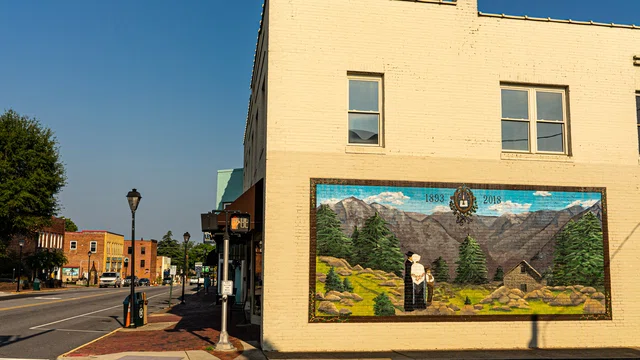
125th Anniversary Mural

All Paws Boarding & Grooming

All That Glitterz
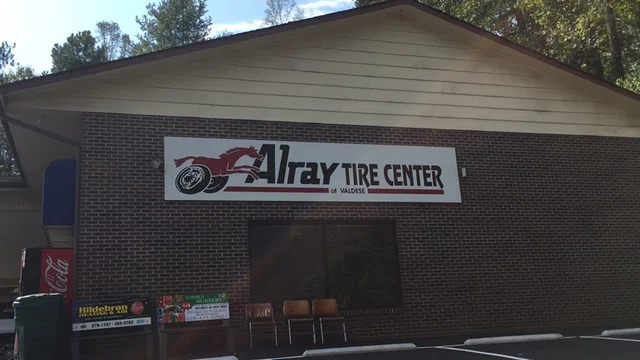
Alray Tire of Valdese
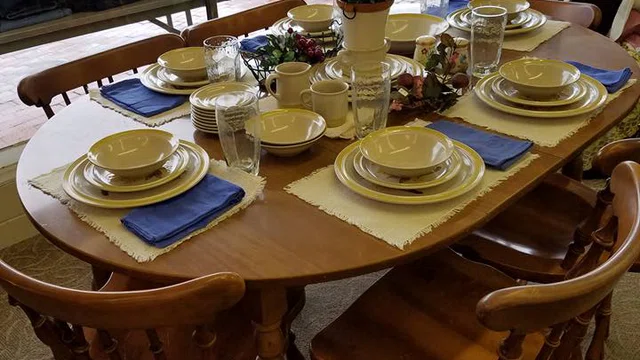
Amorem Thrift Store
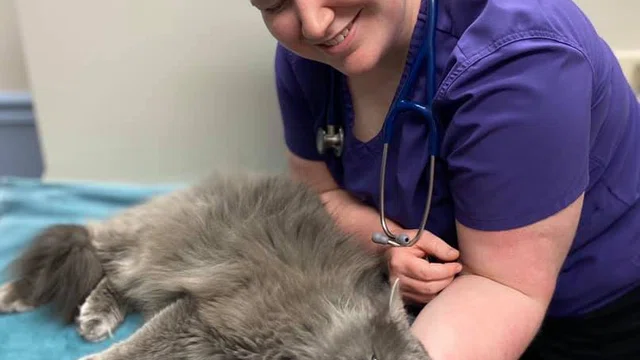
Animal Hospital of East Burke

Autoworks of Valdese

Bargain House Appliance

Barkside Pet Grooming
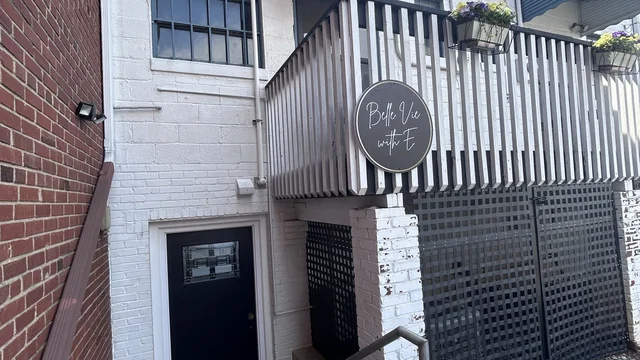
Belle Vie w/ E

